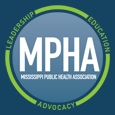Keywords
COVID-19 awareness, hand hygiene, Mississippi COVID-19
Document Type
Research Studies
Abstract
Background: In late 2019, the novel COVID-19 was reported to cause severe viral pneumonia in Wuhan, China. It has spread worldwide, resulting in a pandemic that has now infected more than 123 million people, causing more than 2.7 million deaths globally. Mississippi has become one of the hotspots for spreading the virus with a very high positivity rate. As of 6/09/2021, there were a total of 318,685 cases, and 7,347 deaths have been reported in Mississippi.Purpose: This study aimed to assess the COVID-19 related knowledge among faculty and staff working in our healthcare system. We also assessed if there are any gender differences in COVID-19 related knowledge.Methods: Approval for this cross-sectional study was obtained from our institutional review board at the University of Mississippi Medical Center (UMMC). A convenience sample of staff members, students, and residents at the medical center in the southern United States was invited to complete an online survey. The data were collected from September 29 to October 16, 2020. We asked participants to report demographics (age, gender, and profession), COVID-19 related knowledge (15 questions), received hand hygiene training (one question), and whether they would choose to receive COVID 19 vaccine if made available in the future (one question). SPSS 26 was used to conduct statistical analysis. Descriptive statistics were calculated for all the variables. Chi-Square, one-way analysis of variance, independent samples t-test were conducted, as appropriate. A p-value of < 0.05 was considered statistically significant for all the analyses. Results: A total of 750 individuals completed the study questionnaire. Overall, respondents reported a mean score of 10.03 (standard deviation = 1.06, range 5-13) on the knowledge questions. About one-fourth (26.8%) reported that they had not received any formal training in hand hygiene in the last three years. In addition, almost as many participants (24.3%) indicated that they would not choose to receive the COVID vaccine in the future. Upon analysis, the question, “Use of a face mask is essential in which of the following groups?” was answered incorrectly by more males (7.4%) than females (2.2%; p=0.001). The question, “Is COVID a "hoax"?” was also answered incorrectly by more male (3.0%) compared to female participants (0.7%; p=0.018). It was also found that when participants were asked, “If a proven safe and effective COVID vaccine were made available to you in the future, would you choose to receive the vaccine?” there was a statistical greater difference of “No” responses in females (28.1%) compared to the male counterparts (13.4%; p < 0.001). Conclusion: There is a noticeable gap in knowledge among different age groups. Our institution and others alike around the United States should provide mandatory education sessions regarding the novel COVID virus. The gender differences in COVID awareness responses show that educational awareness should be tailored towards different genders.
Recommended Citation
Bhanat, E.,
Nahar, V. K.,
Dobbs, T.,
Butler, K. R.,
Thimothee, J.,
Parmar, R.,
Bergin, P.,
Russell, G.,
Jones, A.,
&
Navalkele, B. D.
(2022). COVID-19 related Awareness among Healthcare Professionals and Students at the Medical Center in the Southern United States.
Journal of Public Health in the Deep South, 3(1), 1.
DOI: https://doi.org/10.55533/2996-6833.1014

